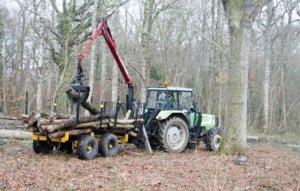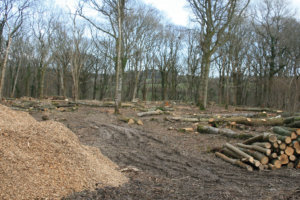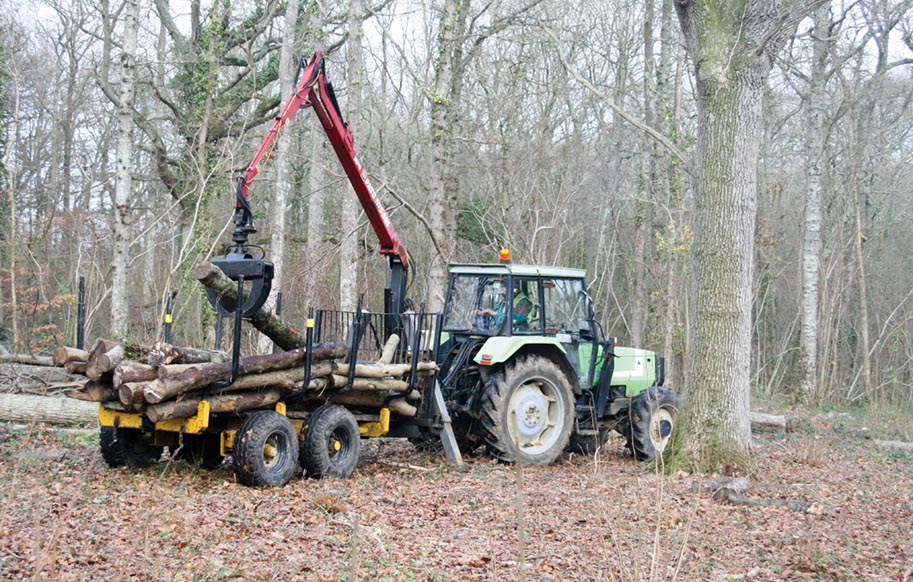 Ok, so the Isle of Wight’s wood fuel industry doesn’t quite have the same turnover as international oil companies, and there aren’t really any barons
Ok, so the Isle of Wight’s wood fuel industry doesn’t quite have the same turnover as international oil companies, and there aren’t really any barons
selling logs on the Island. But fire wood is still very important to everyone!
Lets work backwards… there’s the end user. ‘The Client’. He/she is fed up with increasing fuel costs. Oil, gas and electricity have all gone up leaps and bounds this year, all other industries have competition that allow us to shop round, and although there are different suppliers there is still only one source. It’s also nice to have a real fire in your home. They need attention, but not too much and in return they can leave you with a warm pleasant feeling.
Then we have the ‘log baron’, the chap/chapett, who has already warmed themselves up on your logs through sheer hard work, lifting, cutting, splitting, delivering, and if you are lucky stacking. This isn’t the cleanest of jobs, so you must excuse them if they look a little grubby, with dirty trousers and rough hands – all part of the uniform.
But it goes back further than them, the woodsman (some woodsman double as barons too). Now we’re talking mucky! Trees grow in woodlands and woodland work is done in the winter. It also wrecks kit, so it’s not cheap. Mud, cold, wet and danger are everyday things to look forward too when felling. Getting the tree down is one thing. Once de-limbed, with the brash either cut up or stacked it has to be extracted from the woodland. This involves big kit, tractors or forwarding machines. They are not only expensive to buy and run, you need to be experienced, and in many cases qualified.
 There is one other beneficiary that need to be highlighted, and that is wildlife. Woodland work, coppicing and felling have been practiced in our country for over five thousand years, and we have the landscape of hedgerows and woodlands and their associated wildlife because of this industry. The island is among a handful of strongholds for the endangered red squirrel and dormouse and this is down to the woodlands that we have.
There is one other beneficiary that need to be highlighted, and that is wildlife. Woodland work, coppicing and felling have been practiced in our country for over five thousand years, and we have the landscape of hedgerows and woodlands and their associated wildlife because of this industry. The island is among a handful of strongholds for the endangered red squirrel and dormouse and this is down to the woodlands that we have.
So, what to look for when buying logs? There are no real rights and wrongs about what you should burn, but there are some ‘goods and… not so goods!’ Fire wood can come from many sources tree surgeons waste, surplus timber/pallets and managed woodlands being the most common.
You are the client so don’t be frightened to ask questions – where does the wood come from? If you want to burn it this winter ask for seasoned wood. And always insist on selected hardwoods*, they give off more heat and burn longer. State what size log you would like and let them know, if you have an open fire or log burner. Buying by weight is difficult to compare, as different species have different densities, seasoned logs will always be lighter!
For the benefit of the Islands wildlife and countryside I would recommend logs sourced from locally managed and sustainable sources – Island woodlands. Many of these woods are being managed under the guidance of the Forestry Commission and Natural England.



